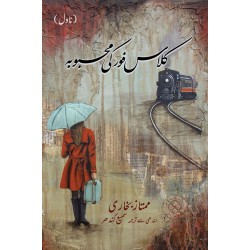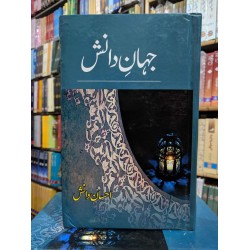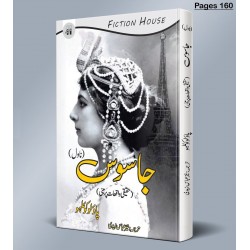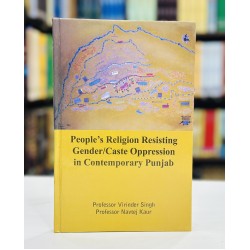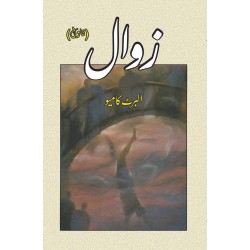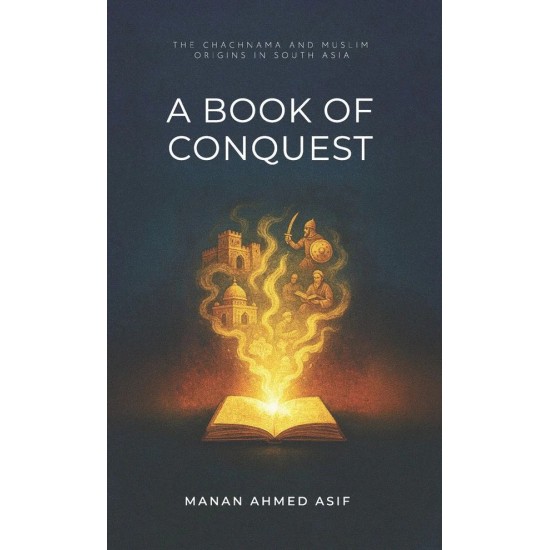
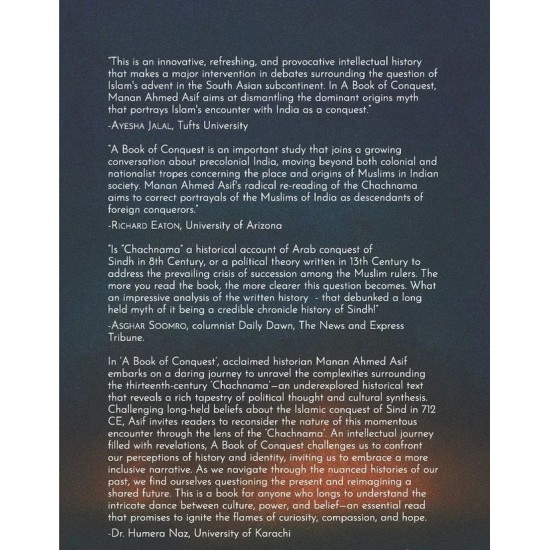
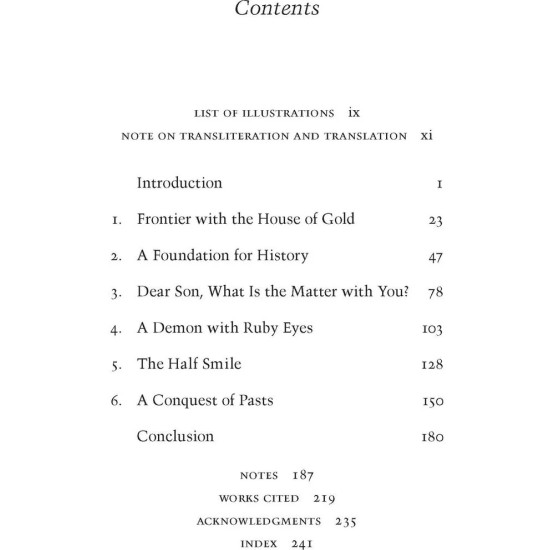
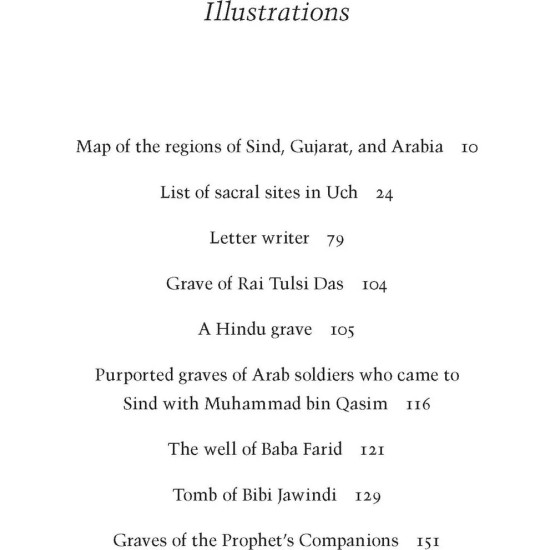




- Writer: Manan Ahmed Asif
- Category: English
- Pages: 265
- Stock: In Stock
- Model: STP-14423
Praise for the book:
“This is an innovative, refreshing, and provocative intellectual history that makes a major intervention in debates surrounding the question of Islam's advent in the South Asian subcontinent. In A Book of Conquest, Manan Ahmed Asif aims at dismantling the dominant origins myth that portrays Islam's encounter with India as a conquest.”
-Ayesha Jalal, Tufts University
“A Book of Conquest is an important study that joins a growing conversation about precolonial India, moving beyond both colonial and nationalist tropes concerning the place and origins of Muslims in Indian society. Manan Ahmed Asif's radical re-reading of the Chachnama aims to correct portrayals of the Muslims of India as descendants of foreign conquerors.”
-Richard Eaton, University of Arizona
“Is “Chachnama” a historical account of Arab conquest of Sindh in 8th Century, or a political theory written in 13th Century to address the prevailing crisis of succession among the Muslim rulers. The more you read the book, the more clearer this question becomes. What an impressive analysis of the written history - that debunked a long held myth of it being a credible chronicle history of Sindh!”
-Asghar Soomro, columnist Daily Dawn, The News and Express Tribune.
In ‘A Book of Conquest’, acclaimed historian Manan Ahmed Asif embarks on a daring journey to unravel the complexities surrounding the thirteenth-century ‘Chachnama’—an underexplored historical text that reveals a rich tapestry of political thought and cultural synthesis. Challenging long-held beliefs about the Islamic conquest of Sind in 712 CE, Asif invites readers to reconsider the nature of this momentous encounter through the lens of the ‘Chachnama’. An intellectual journey filled with revelations, A Book of Conquest challenges us to confront our perceptions of history and identity, inviting us to embrace a more inclusive narrative. As we navigate through the nuanced histories of our past, we find ourselves questioning the present and reimagining a shared future. This is a book for anyone who longs to understand the intricate dance between culture, power, and belief—an essential read that promises to ignite the flames of curiosity, compassion, and hope.
-Dr. Humera Naz, University of Karachi
About the Book:
The question of how Islam arrived in India remains markedly contentious in South Asian politics. Standard accounts center on the Umayyad Caliphate’s incursions into Sind and littoral western India in the eighth century CE. In this telling, Muslims were a foreign presence among native Hindus, sowing the seeds of a mutual animosity that presaged the subcontinent’s partition into Pakistan and India many centuries later.
But in a compelling reexamination of the history of Islam in India, Manan Ahmed Asif directs attention to a thirteenth-century text that tells the story of Chach, the Brahmin ruler of Sind, and his kingdom’s later conquest by the Muslim general Muhammad bin Qasim in 712 CE. The Chachnama has long been a touchstone of Indian history, yet it is seldom studied in its entirety. Asif offers a close and complete analysis of this important text, untangling its various registers and genres in order to reconstruct the political vision at its heart.
Asif challenges the main tenets of the Chachnama’s interpretation: that it is a translation of an earlier Arabic text and that it presents a history of conquest. Debunking both ideas, he demonstrates that the Chachnama was originally Persian and, far from advancing a narrative of imperial aggression, is a subtle and sophisticated work of political theory, one embedded in both the Indic and Islamic ethos. This social and intellectual history of the Chachnama is an important corrective to the divisions between Muslim and Hindu that so often define Pakistani and Indian politics today.
About the Author:
Manan Ahmed Asif is Professor of History at Columbia University.
He is the author of
The Loss of Hindustan: The Invention of India (2020) and
Disrupted City: Walking the Pathways of Memory and History in Lahore (2024).
| Book Attributes | |
| Pages | 265 |
